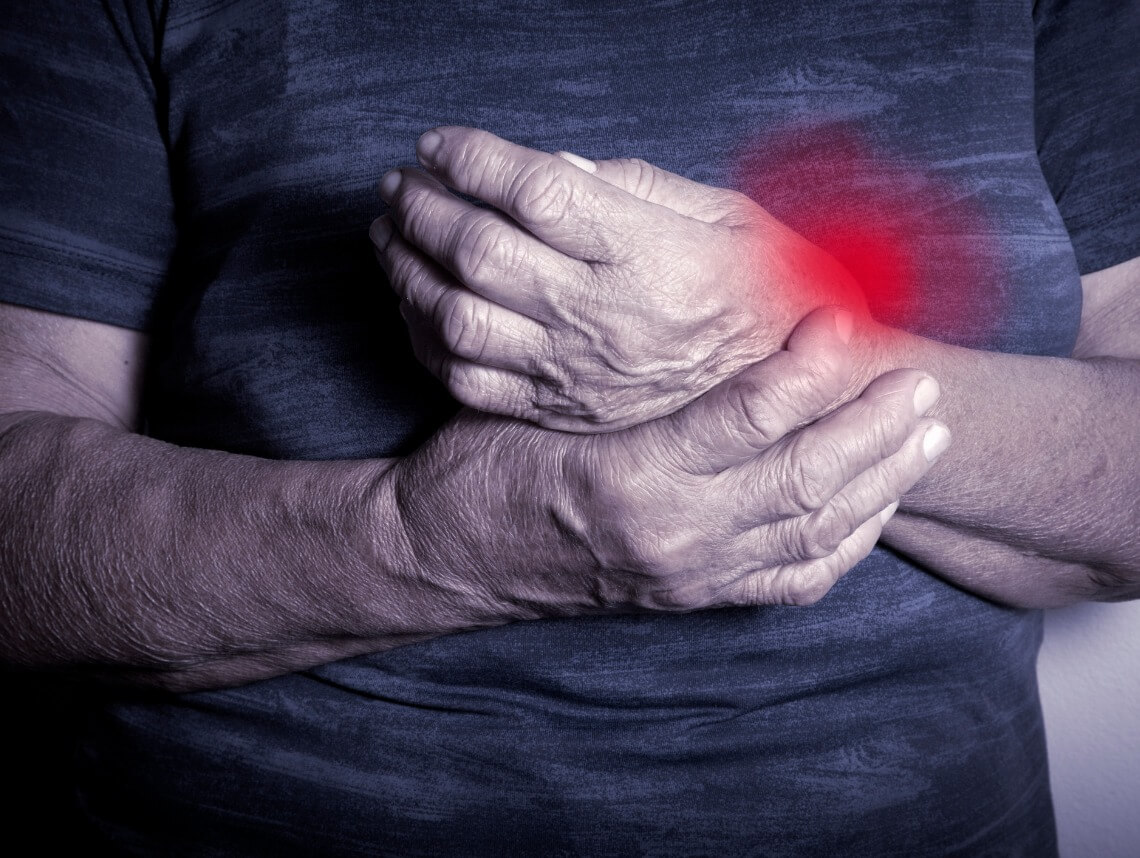Rheumatoid arthritis (RA) is an autoimmune disease that affects not just the joints, but can also damage other parts of the body, including the skin, lungs, heart, eyes, and blood vessels. RA attacks the linings of joints, making the joints swell and leading to joint deformity.
Although there are different types of RA, most cases are chronic and progressive, meaning they get worse as time goes on. If your parent has been diagnosed with a progressive form of RA, it’s important to understand the stages of the disease and what to expect over time.
Rheumatoid Arthritis Symptoms
RA symptoms differ for everyone, and sometimes it can be difficult to tell if a person has the progressive form. Some things that may indicate a person’s RA will worsen are:
- Intense flares or ones that last for a long time
- Being a young age when diagnosed
- Inflammation that appears in tests of joint fluid or blood
- A great deal of damage showed on x-rays at the time of diagnosis
- Nodules, or bumps, under the skin, most often at the elbows
- Blood tests that show high levels of Rheumatoid Factor (RF)
As the disease advances, the person will experience inflammation more often and the pain will get worse. They may also experience new symptoms. RA requires a treatment plan that is tailored to the patient based on the symptoms they have and the history of their disease.
Stages of Rheumatoid Arthritis
RA has four stages. They are:
Stage 1: This stage is when swelling in the joint starts and causes the initial symptoms of swelling, stiffness, and joint pain.
Stage 2: At this stage, cartilage damage will have occurred and the person will have bouts in which their range of motion and mobility are affected.
Stage 3: At stage 3, the condition is considered severe. Bone damage has begun. Pain and swelling are worse. There may also be some joint deformity.
Stage 4: In the final stage of RA, the inflammation process stops and joints no longer work. The person still experiences pain, swelling, and decreased mobility.
Contact Care Options for Kids for Home Care Services in Florida
For a senior with RA, getting around can be very difficult, as can simple, everyday tasks, like buttoning a shirt. An elder care provider can help with aspects of personal care, like dressing, grooming, and bathing. Elder care providers can also do things around the house that the older adult can no longer do, such as laundry, cooking, and light cleaning. In addition, elder care providers can drive RA patients to medical appointments and remind them to take prescribed medications.
If you or an aging loved one are considering hiring home care services in Florida, contact the caring staff at Care Options for Kids today at (888) 592-5855.
Sources
https://www.verywellhealth.com/rheumatoid-arthritis-signs-and-symptoms-190325
https://www.webmd.com/rheumatoid-arthritis/ra-progression#1
https://www.mayoclinic.org/diseases-conditions/rheumatoid-arthritis/symptoms-causes/syc-20353648






